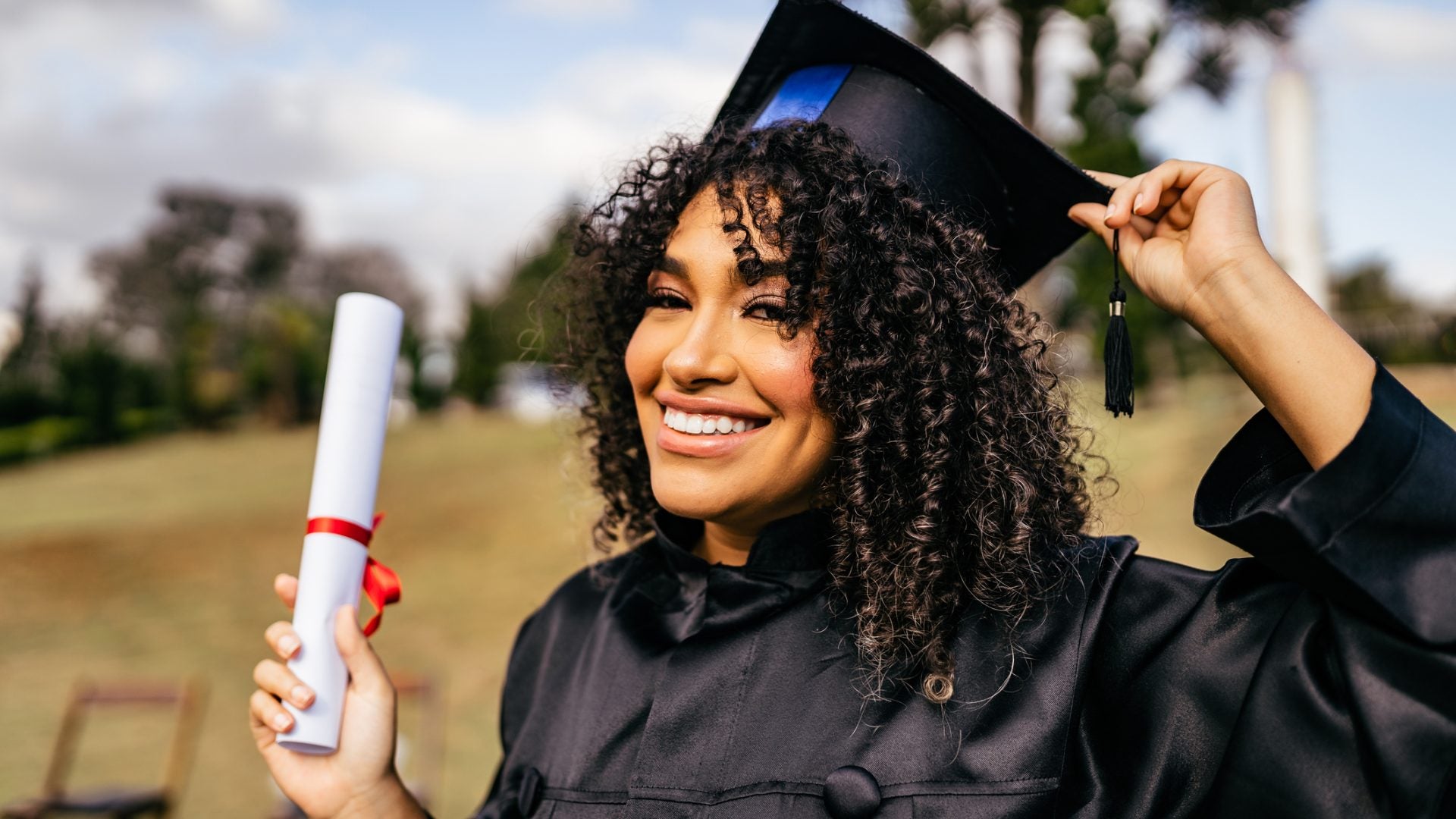
Congresswoman Barbara Lee’s political journey began with a pivotal encounter with Shirley Chisholm—the first Black woman in Congress and the first Black woman to seek a major party’s presidential nomination. Inspired, Lee joined Chisholm’s presidential campaign in 1972 – and since that serendipitous moment, Lee has logged over 30 years of experience as a public legislator, bringing valuable insights into the progress made for women of color over the decades.
In her time as a public servant, Rep. Lee became the first Black woman elected to the State Senate from Northern California, holding the distinction of the highest-ranking Black woman in Democratic leadership. Throughout her tenure, she has chaired the Congressional Black Caucus, Congressional Progressive Caucus, the House Democratic Steering Committee and served as a ranking member on the Appropriations Committee, using her position to advocate for antiwar initiatives that also prioritized the immediate needs of the working-class Black lives. While her recent Senate run to succeed Diane Feinstein was unsuccessful, her work is far from done: staying true to her organizing roots, Lee plans to continue driving change through her famous “inside-outside” approach to building political power amongst the people.
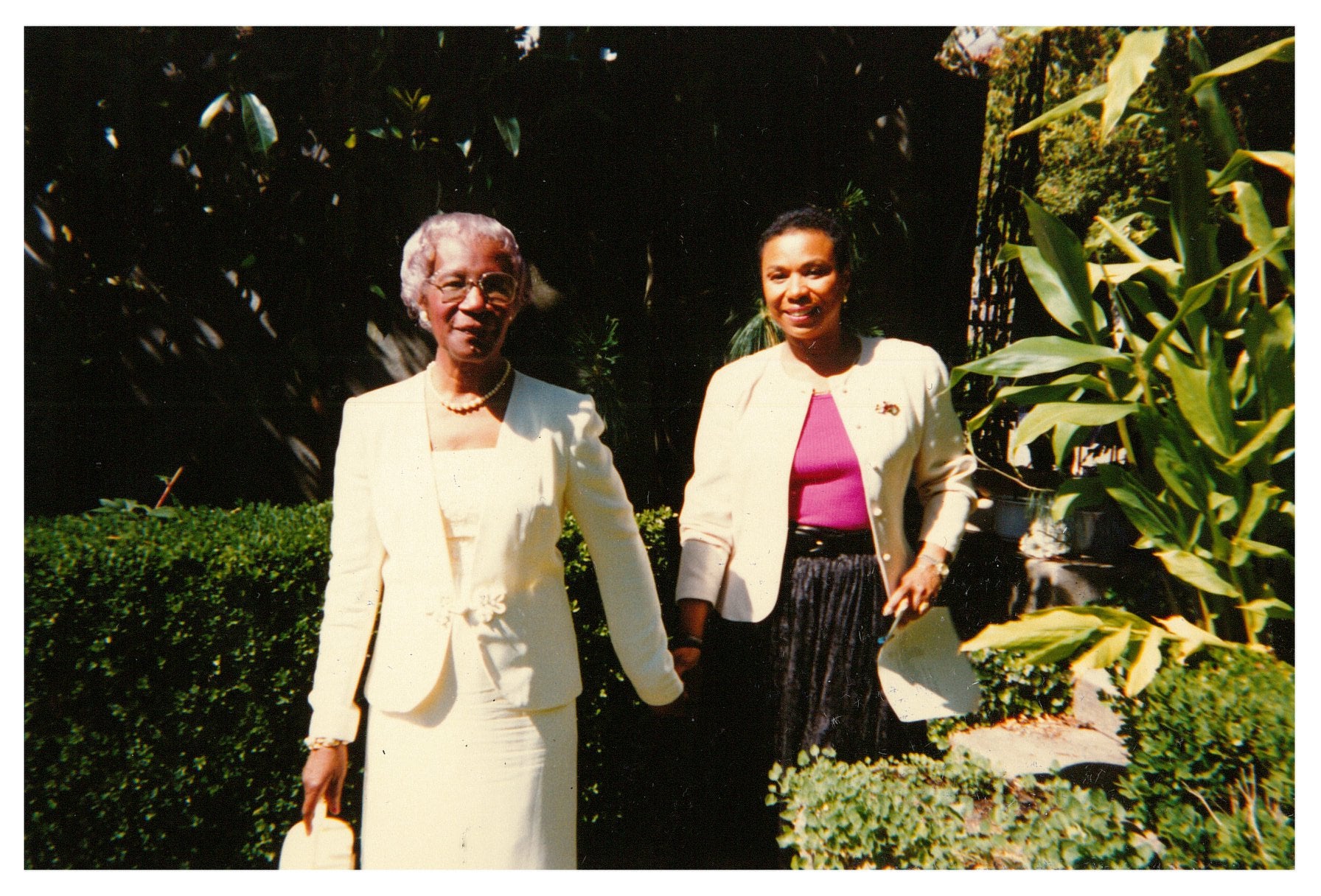
It’s the week before the 2024 Democratic National Convention (DNC) in Chicago. Congresswoman Barbara Lee has only missed one DNC in her over 30 years of service as a public servant and politician—and this year will be one of the most important. After beginning her career in electoral politics by volunteering for Shirley Chisholm’s historic presidential campaign in 1972, at this, her final DNC as an elected official, the veteran Congresswoman watched friend, colleague and sitting Vice President Kamala Harris accept the Democratic Party’s nomination for president. You could say that Lee’s stunning legislative career has been bookended by the achievements of two Black women.
“I got involved in politics through the first Black woman running for president, who was the first Black woman also elected to Congress,” Lee says, speaking fondly of her memories of Chisholm not just as a fierce political force, but also as a fun-loving woman who enjoyed dancing.
Lee has similarly been an advocate for Harris in their three-decade-long relationship—not only did she endorse her initial presidential campaign in 2020, but she also supported her in the journey to Attorney General of California in a hotly contested race, staying in the campaign office until 2 a.m. on occasion. “Kamala Harris was, incidentally, born in Oakland, my district, raised in Berkeley, my district, former DA of San Francisco, Attorney General in California, and our Senator. It just shows you that you have to stay the course. This is a marathon; it’s not a sprint.”
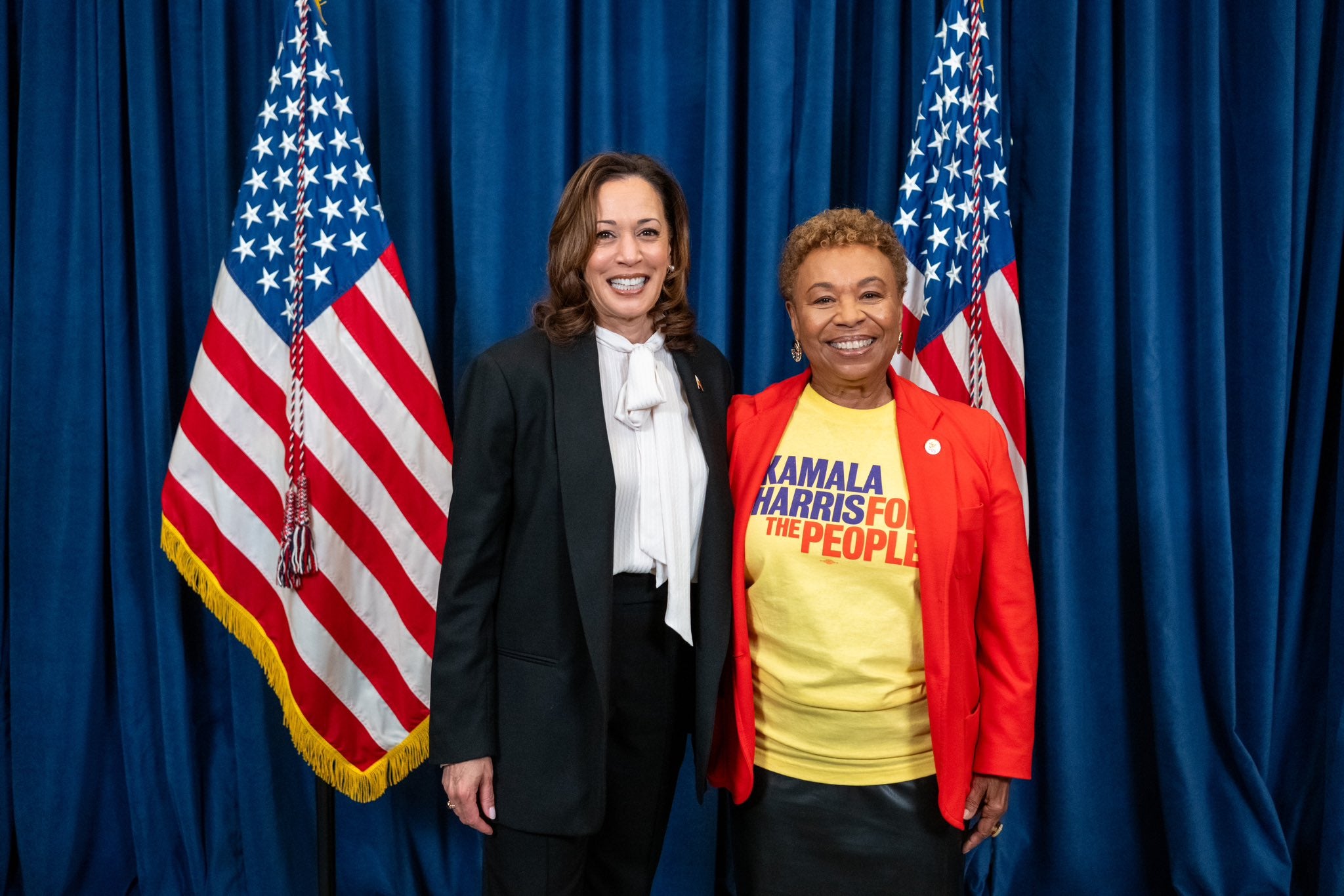
Lee is familiar with the long haul of the legislative journey. After spending over half her life in public service, the 78-year-old Congresswoman views her work as more than a profession – it’s a calling and one that is overdue in including Black women’s voices at the local, state and national level. Her record boasts a stunning array of firsts: the only African-American woman (and first north of Los Angeles) ever elected to the House of Representatives, the California State Senate and the California State Assembly. “We’ve only had—total, at one time—three African-American women serving in the Congress,” Lee points out. “I have to fight every day, not only for my constituents but for the issues that only a Black woman brings to the table.”
That list of priorities and accomplishments is quite long and has set a strong foundation for the new wave of progressive legislators who have been praised for their willingness to reject the status quo and advocate for a better future. Congresswoman Ayanna Pressley fondly refers to Lee as the “OG,” touting her record as the chair of the progressive caucus and a trendsetter in being willing to make big swings to serve her community, from homing in on foreign policy to advocating for the passage of a bill to establish the Commission to Study and Develop Reparation Proposals for African Americans, introduced in 2021 by Rep. Sheila Jackson Lee.
The feeling of camaraderie and support between Lee and Pressley is mutual. “I have been so fortunate to know Congresswoman Barbara Lee for more than a decade—long before I had the privilege to serve beside her in Congress—and to call her a friend, mentor, and partner,” she gushes in an email, emphasizing how the senior Congresswoman has been an effective leader and lawmaker in the work of eradicating poverty, advancing peace and diplomacy and ensuring reproductive justice.
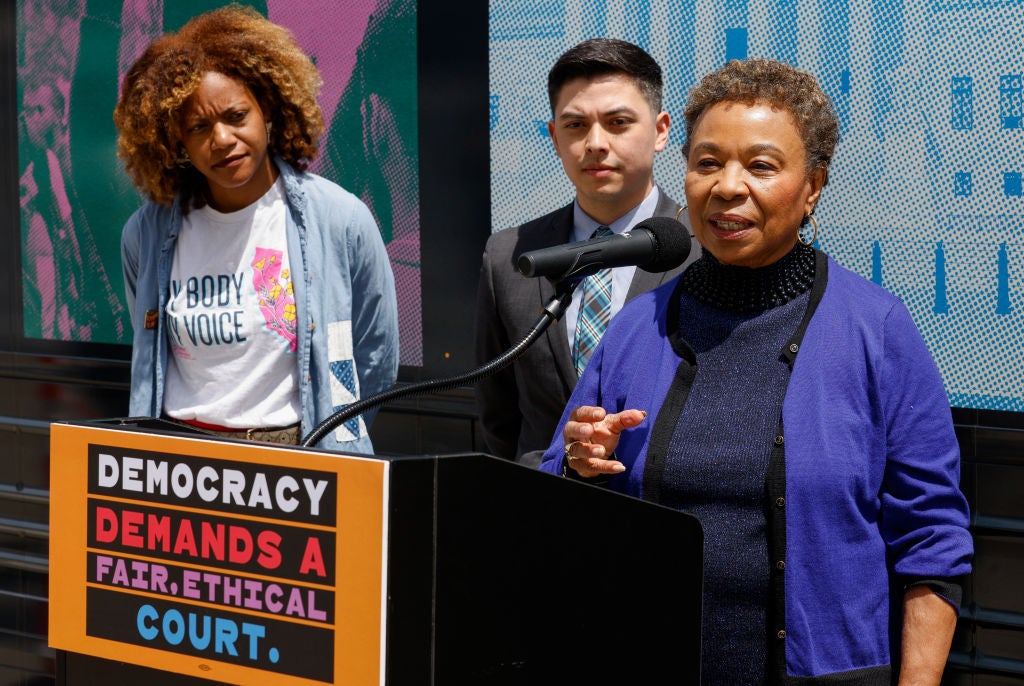
“Congresswoman Lee has paved the way for so many of us—to run for office, to shift the narrative, to bring our lived experiences to the table and to advance policies that undo the precise and intentional harm that has been imposed on our Black communities for generations. I am blessed and honored to know her and to have benefited from her mentorship and leadership,” Pressley shares with ESSENCE.
Lee’s storied career in political activism is defined by her working-class background—a former single mother on public assistance with a keen understanding of the issues that plague working-class Black communities, from housing to healthcare. This lived experience—unusual in a legislative class filled with Ivy League graduates and former white-collar professionals—allows her to extend empathy to the masses of voters disenchanted with the current electoral process.
“The majority of African-Americans aren’t really apathetic. I think they just don’t see their government working for them,” Lee stresses. She points out the issues facing the very vocal younger generation: housing, climate change and social justice. From her purview, their concerns need to be addressed more, and Lee notes that she wasn’t registered to vote before working for Chisholm. “I came kicking and screaming,” she says, chuckling. “What that convention and what Shirley Chisholm required of me, and what I had to do was move forward and see what I could do politically or in public service to help repair the damage of the past.”
Part of what gives Rep.Lee this insight is her unique background as a community worker before transitioning to electoral work. Before joining Chisholm’s 1972 presidential campaign, Lee was a social worker and community organizer, running a mental health nonprofit and working alongside the Black Panthers. Her experiences allowed her to be sensitive to younger activists who are disenchanted by the system—had it not been for Chisholm, she would likely have remained on a similar trajectory of agitating from the outside. Now, she advocates for both an inside and outside approach, touting her experience as a senior legislator on high-visibility committees such as Appropriations and Budget. “What I learned and what I know on the inside, I’m gonna take to the streets with me,” she says, emphasizing that democracy is ultimately a function of the power of the people. “I will be out there protesting. I will be out there fighting for what is right. I will be out there organizing.”
Perhaps no moment is more indicative of her inside-out approach to legislative activism than her lone no vote against the authorization of use of military force (AUMF) in 2001 and 2002 following the September 11th attacks, an anti-war position she continues to advocate for to this day. While it was a position that garnered her massive critique in the post-calamity bloodlust of the time, the scales of time have begun to shift in her favor, with Lee continuing to garner bipartisan support for the repeal of AUMF 2001 and 2002 – in a 2021 vote in the House, a repeal of AUMF 2002 passed with 49 Republicans supporting the bill, including controversial Representative Lauren Boebert. “You have to kind of stand out there when you believe in what you believe in, and do the right thing,” she reasons. Her sustained ethos in the anti-war space extends to the crisis in Gaza as well—an issue that has galvanized the youth movement throughout the country.
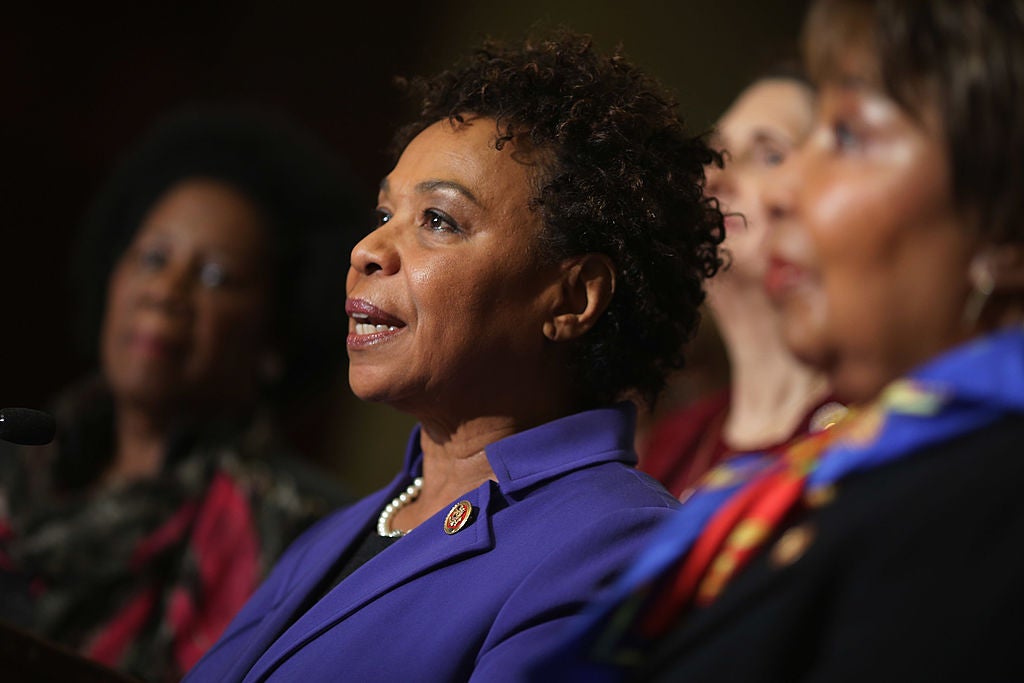
Lee is intimately aware of the stakes. In our conversation, she recounts being in Lebanon in the late 1970s and nearly stepping on a cluster bomb. “Someone had to pull me away—and [when] I walked farther and picked up a casing of the cluster bomb, it said, Made in USA,” the Congresswoman recalls somberly. Her personal experience with these issues is why she understands the need and power of the youth protest voice, pragmatically pointing out that the current conflict is both devastating to the Palestinian people and counterproductive to Israel’s security. “Young Black people and people in general need to raise their voices and say, Look, we want peace and security in this world.”
While Lee may be stepping down at the end of this Congressional term in January 2025, her work is far from over. She frames this next phase not as a retirement but as a redirection. Rep. Lee still has a full plate of work to do, from continuing her AIDS activism to lobbying for Chisholm to be granted a posthumous Congressional Gold Medal. And she continues to seek to motivate Black women to be progressive agitators in the system—including San Francisco’s Lateefah Simon, whom she has endorsed as her successor—encouraging more people to mobilize on all levels of the political process from the local to the national, noting that campaign finance continues to be a limitation in engaging a new crop of eager public service.
“Our community still has not been resourced properly in terms of elections,” she observes, indicating that her own recent campaign for Senate was stymied by disproportionate funding versus her opponents’ (Lee does not accept corporate funds). “We’ve got to get to public financing a campaign so that the playing field is level.”
As she prepares for the next chapter of her life, Lee struggles to wrap her head around the immensity of what she has accomplished. It wasn’t until Regina King personally invited her to screen the 2024 Netflix movie Shirley, which closes with her remarks on Chisholm’s historic campaign and how it shaped her life, that she began to let tears flow. “When I was first elected to the California Assembly, then Senate, then Congress, I never really looked back and thought about, I’m the first. I had to fight every day, you know. And now that I look back, I guess in reflection, I said, How did I do this?” she laughs, explaining that she looked to Dr. Maya Angelou’s famous poem “Still I Rise” as a guiding post.
“One of the lessons that I will communicate to other Black women running for office as the first or the only is how you can’t get stuck thinking about that. Because you have a heck of a lot of work to do to make life better for not only women and Black women in our communities, but for the state, the country and the entire planet,” says Lee.

